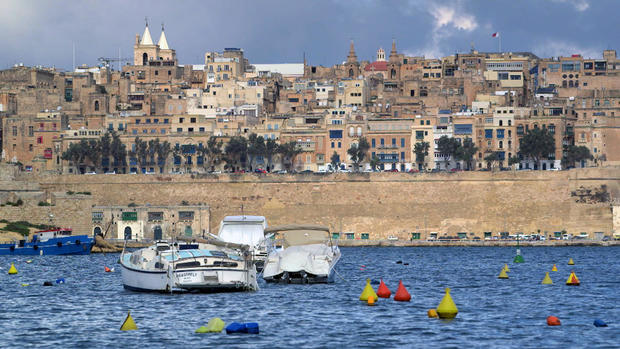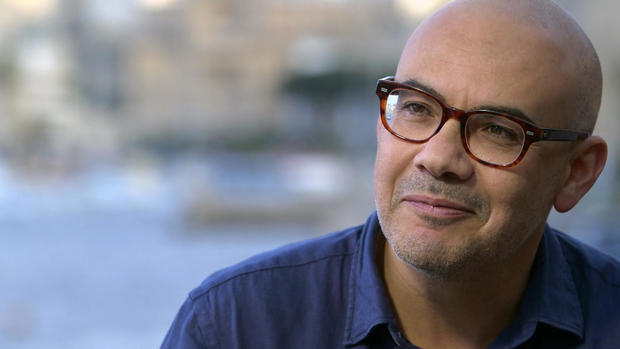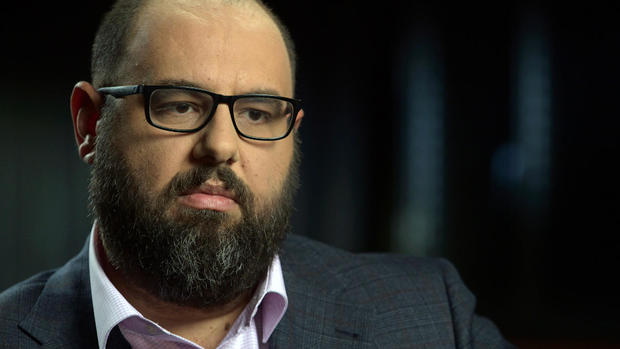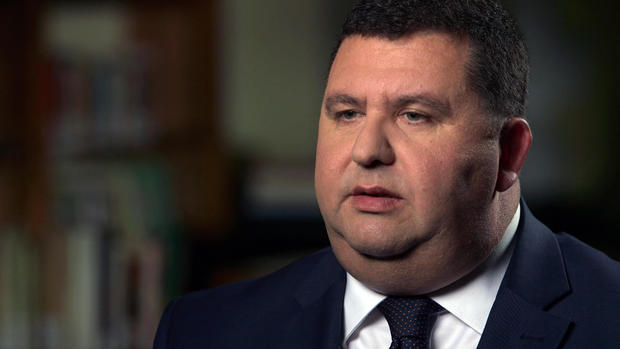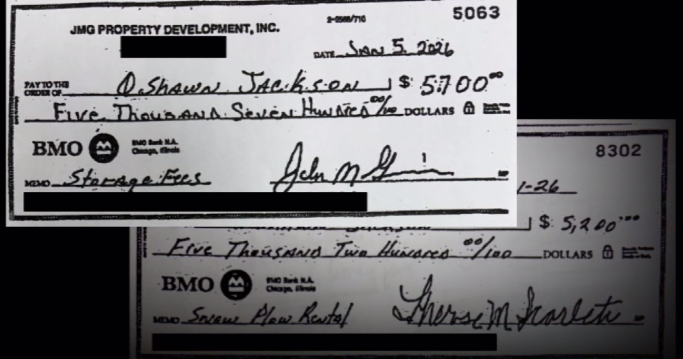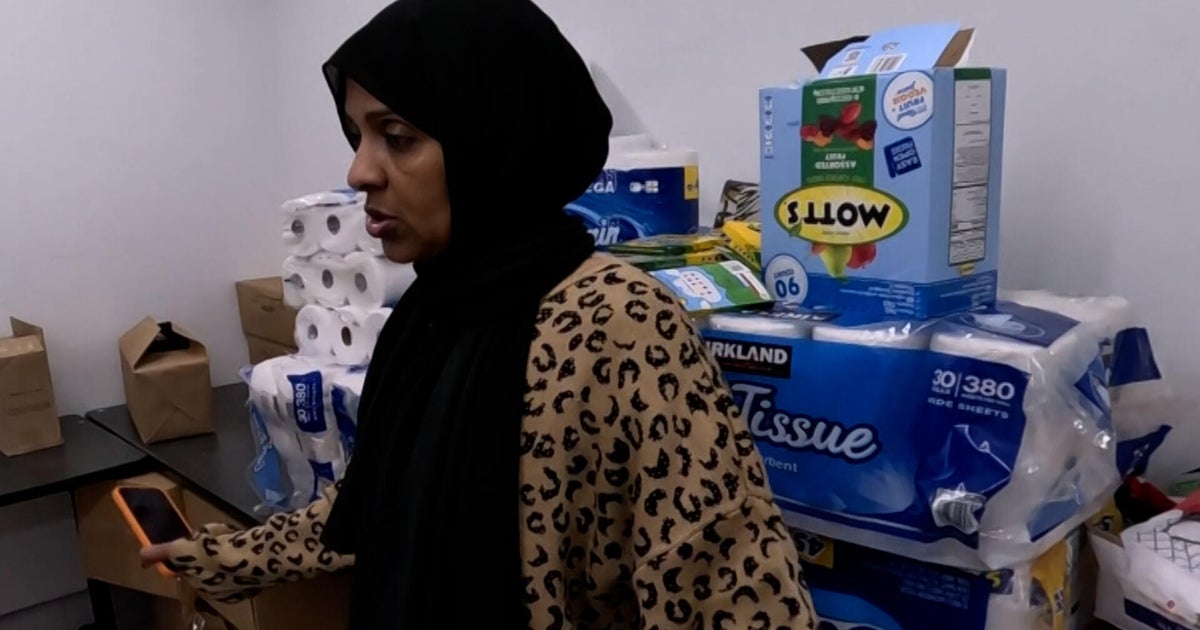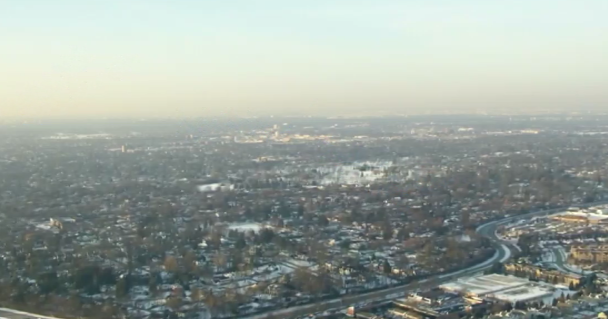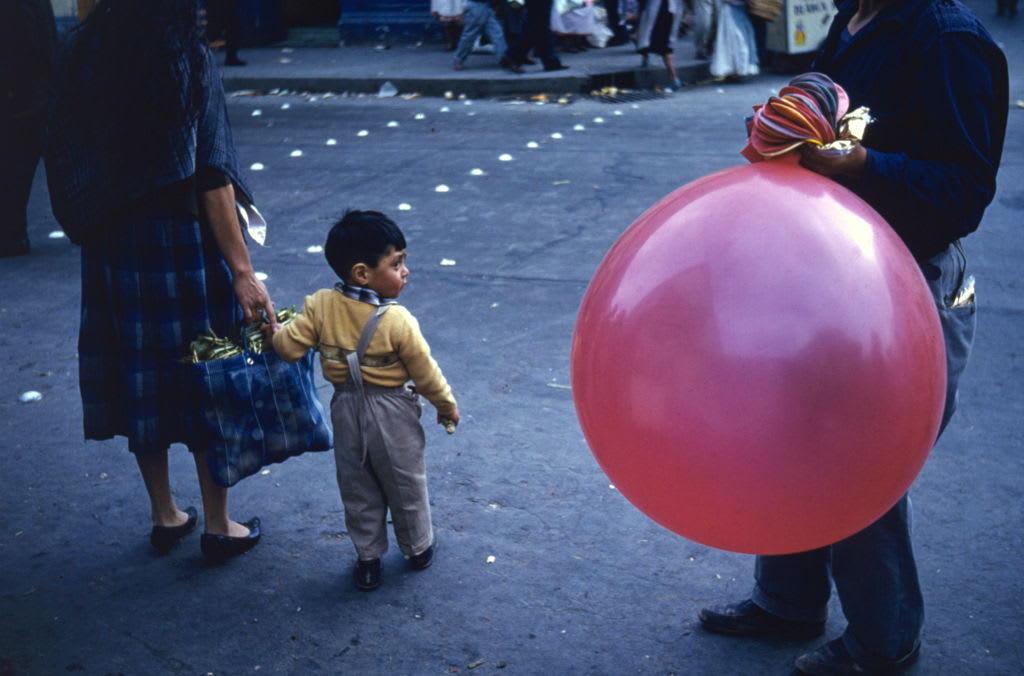Inside the corruption allegations plaguing Malta
Malta, you might say, is punching above its weight. The smallest nation in the European Union is home to one of its fastest growing economies. Name a voguish growth-sector, internet gambling, cryptocurrency, blockchain, artificial intelligence and Malta is trying to establish itself as a hub. A mere blip in the Mediterranean, Malta prides itself on this surge and its plucky personality. But as we discovered on a recent visit, there's a fine line between the cutting edge and the margins, the sun and the shadows. Along with old charms and new construction, Malta is earning a reputation for rampant corruption and dubious dealings. And then there's the matter of the assassination of a journalist, Daphne Caruana Galizia, whose revelations cut a little too close to the heart of power.
Malta sits as a sun-dappled speck in the Mediterranean, three small islands a short ferry ride from Sicily and not much farther to Libya, the southern gateway to Europe. It can be hard to get your bearings here. Over the last three millennia, Malta has been conquered or colonized by just about every world power and each has left its mark.
Most of the 500,000 people here are Catholic, a tradition that started early. The Apostle Paul is said to have shipwrecked here in 60 A.D.
Mark Anthony Falzon: I find this to be a good metaphor of Maltese culture.
Mark Anthony Falzon is an anthropology professor and local newspaper columnist.
Mark Anthony Falzon: The story is that St. Paul converted the Maltese to Christianity. So that would mean that Malta was one of the first places to be converted to Christianity even before Rome. So we would be the original and the best Christians.
A small band of crusaders, later known as the Knights of Malta, fended off the mighty Ottomans in the 16th century. Under British rule, the Maltese survived more than 3,000 German and Italian bombing raids in World War II.
Malta gained its independence in 1964 and, since then, this country with little heavy industry and not much arable land, has had to figure out a way to get by on its own.
Remnants of its fabled past have made it irresistible to Hollywood producers, parts of "Gladiator" were filmed here and "Game of Thrones."
Europeans flock here for a budget tan. Oligarchs, to dock their superyachts.
Malta's already an established hub of online gambling.
But since taking over in 2013, the current government has sought to refashion the country as a mecca for emerging and complex technologies like cryptocurrency and blockchain. The 44-year-old prime minister, Joseph Muscat, is the high priest of this new gospel.
These industries may be thriving in this sunny place, yet they're known to attract more than their fair share of shadowy people. But that's nothing new. For centuries, Malta played host to pirates and smugglers, operating at what Mark Anthony Falzon calls the "center of the fringes."
Jon Wertheim: It strikes me there's a certain ingenuity, a certain scrappiness here.
Mark Anthony Falzon: Um, yes, And scrappiness also means flexibility.
Jon Wertheim: Does that also pertain to-- a willingness to bend rules? Flexibility in that sense?
Mark Anthony Falzon: No doubt. Yes. The person who never bends the rules they are thought of as a bit of a good boy.
Jon Wertheim: Which is not a term of endearment.
Mark Anthony Falzon: No, a good boy is not a very good thing to be. It's naïve.
Perhaps in that same entrepreneurial spirit, the government has launched a program, some call it a scheme, to sell passports to the world's super-rich. Have a spare million? You too could buy Maltese citizenship, and as this promotional video shows, the European Union passport that comes with it.
Promotional Video: As citizens of Malta, successful applicants can enjoy visa-free access to approximately 170 countries.
Jon Wertheim: Who's buying these passports?
Manuel Delia: Russian tycoons, Chinese tycoons, Saudi tycoons, Nigerian tycoons.
For Manuel Delia, an online journalist and longtime critic of the current government, the program, estimated to have brought in almost a billion dollars, is essentially a Trojan horse, allowing those with dubious aims to breach Europe's borders.
Jon Wertheim: Why would they want a Maltese passport?
Manuel Delia: Because they want to go in the rest of the world, hiding where they're really from. Maltese passports give them not only free movement for themselves through European airports, but it gives their money, their capital free movement throughout Europe.
And free movement to the United States.
Jon Wertheim: American airport, you've got that Maltese passport validated by the EU, you go right through passport control?
Manuel Delia: Visa-free. Absolutely. So, that's a big reason to have it.
Applicants to the "golden passport program," as it's come to be known, are supposed to show that they've established residence in Malta for at least a year, but when we checked the listed address for a Russian tycoon it led us here. To a modest suburb and rundown basement apartment that had been divided in two.
Jon Wertheim: let's just call this what it is. This-- this is a fraud.
Manuel Delia: It is a fraud. It's a fraud. What-- what's worse, it's perpetrated by the state. It's not just sanctioned by the state.
There are other countries in Europe where money can get you a passport, but in tiny Malta, it has helped contribute to the economic boom. And yet, if Malta is suddenly flush with cash, in other ways it's bankrupt. At least according to journalist Daphne Caruana Galizia, who spent years chronicling organized crime as well as high-level corruption for Malta's major newspapers and then on her blog, "Running Commentary." When she launched the site in 2008, her son Matthew says it quickly turned into a must-read.
Jon Wertheim: How would you describe her blog, "Running Commentary," to someone that-- that hadn't read it before?
Matthew Caruana Galizia: It was completely revolutionary.
She became known simply as "Daphne," and just as quickly, became a reviled figure in some corners of Malta. Vilified by government officials, subjected to libel suits and to death threats.
Jon Wertheim: Do you ever think to say, "Mom, you gotta stop the blog. You've gotta stop poking and provoking. This is getting dangerous?"
Matthew Caruana Galizia: Of course she felt fear, and you could see it. She knew that the powerful people that she was writing about were closing in on her. They were using every possible means to shut her down. She knew that, and that frightened her deeply.
Then on the afternoon of October 16, 2017, Matthew was sitting across from his mother at the dining room table in the family home as she finished a blog post. "There are crooks everywhere you look now," she wrote. "The situation is desperate."
Just before 3 p.m., she left the house to go to the bank.
Matthew Caruana Galizia: And then what seemed like 30 seconds later I hear the explosion. And it was just so loud.
Daphne's car made it less than a mile down the road through the valley when a powerful bomb placed under her seat was detonated, sending thick black smoke into the air. Matthew ran toward the wreckage.
Jon Wertheim: So you think this is where--
Matthew Caruana Galizia: I think this is where-- the-- this is where the bomb went off. It's been marked by the forensic team. And this is where a lot of the flesh and metal and plastic was.
The car ended up in a field 100 yards away, consumed by a fireball. Matthew's first instinct was to try and get his mother out.
Matthew Caruana Galizia: I remember walking up to the driver's side and just seeing fire. I didn't see anything else inside the car.
Jon Wertheim: There are a lot of ways to kill someone. What do you think the significance of a car bomb this powerful was?
Matthew Caruana Galizia: Obviously it was a way of killing my mother. A way of sending a message to us. To our family. And a way of sending a message to anyone else who was thinking of doing anything about the really grand corruption in this country.
Jon Wertheim: This was a symbolic gesture?
Matthew Caruana Galizia: It was.
For the mourners who attended Daphne's funeral, her assassination was symbolic of just how corroded Malta had become. Under a government that she claimed doesn't just tolerate corruption, but encourages it.
The list of scandals she exposed and relentlessly pursued is too numerous to catalogue here and includes allegations of cronyism, bribery, and money laundering. But there's one revelation that stands out.. involving a murky Maltese bank recently shuttered by European authorities. It allegedly held accounts for some of Malta's most well-connected, including the Prime Minister's Chief of Staff, Keith Schembri. As Daphne chronicled, Schembri is alleged to have taken kickbacks for brokering Malta's billion-dollar national energy deal; and for taking payoffs to help Russian millionaires snag those coveted Maltese passports.
Manuel Delia: Keith Schembri is still in business. He's the chief of staff of the prime minister. He's the most powerful man in this government.
Jon Wertheim: He went to work today?
Manuel Delia: He went to work today--
Jon Wertheim: With-- with this cloud hovering over him?
Manuel Delia: Well, this is what impunity is about. This is why I'm angry.
Schembri denies any wrongdoing. But leaked findings into the passport kickback allegations by Malta's own financial watchdog determined that there was, "reasonable suspicion of money laundering and/or the existence of proceeds of crime." Maltese justice officials are looking into both sets of allegations. What's more, there have been multiple inquiries by European authorities, all raising serious questions about corruption in Malta. We put all this to Glenn Bedingfield, a local member of Parliament and former advisor to the Prime Minister.
Jon Wertheim: What's your level of concern?
Glenn Bedingfield: I don't have any concerns.
Jon Wertheim: You have no concerns about corruption?
Glenn Bedingfield: No, because I think that there's a smear campaign, trying to hit the government.
Jon Wertheim: All of this is a politically charged smear campaign--
Glenn Bedingfield: It is a politically charged smear campaign, yes--
Jon Wertheim: The EU, the European authorities.
Glenn Bedingfield: The EU. Can you quote from an EU-- can you?
Jon Wertheim: I can quote from an EU report-- right now. This is Ana Maria Gomes an MEP--
Glenn Bedingfield: Whoa, ho, ho, ho, ho, ho. Ana Maria Gomes.
Ana Maria Gomes is a Portuguese member of the European Parliament leading an EU inquiry into the rule of law in Malta. She is part of a growing chorus of officials who see the country as a problem child on the continent.
Ana Maria Gomes: The system is basically flawed, because the prime minister ultimately controls the attorney general, who also controls the police. Nobody's being tried. And of course, the sense of impunity is being fuelled by this fact.
Ana Maria Gomes: And it affects us all.
Jon Wertheim: Something's rotten in the state of Malta, I hear you say.
Ana Maria Gomes: Yes. And such a beautiful island, and such a great people, such a proud history. But-- I must say that at the moment, indeed, the political-- atmosphere is-- is-- is rotten.
We repeatedly asked to speak with Prime Minister Muscat, but were told he didn't have time. Instead, the government put forward the Finance Minister, Edward Scicluna.
Jon Wertheim: The sheer volume, the circumstances, the fact patterns, can you not see how people looking at Malta from the outside really wonder about integrity and corruption here?
Finance Minister Edward Scicluna: Well, if they n-- want to know more about Malta, they'll find out that it's not that picture you're-- you're depicting. It looks bad, but it's not.
Jon Wertheim: Not the way it's been depicted--
Finance Minister Edward Scicluna: Definitely not.
Jon Wertheim: I want to be clear. This is a depiction based on multiple different authorities inside in Europe--
Finance Minister Edward Scicluna: All allegations, they are all allegations.
Jon Wertheim: They're allegations that have come out of investigations. These aren't ad hominem attacks--
Finance Minister Edward Scicluna: No. I'm not trying to downplay allegations. Allegations are serious. But they are still allegations. You know, it's up to the courts and their procedures and their experts to de-- to decide.
The supporters of Daphne Caruana Galizia have no faith in these experts and procedures, especially when it comes to solving her murder. After a high-profile government raid last year, three men were detained, figures she didn't know and never wrote about, but few doubt the assassination was ordered by one of her many powerful enemies.
Jon Wertheim: How will you know when you have justice?
Matthew Caruana Galizia: When all the corrupt people that she was reporting on treating our country as a gigantic trough which they're feeding from for years. When they've paid the price for that, then there will be justice for my mother's stories. But there also has to be justice for her murder, too.
The old ramparts, designed to protect Malta from conquest and colonization still stand tall. But outside forces that once might have invaded the country, now look on with concern, waiting to see whether Malta can confront itself, and move in from the center of the fringes.
Produced by Michael H. Gavshon, David M. Levine and Aarthi Rajaraman.
